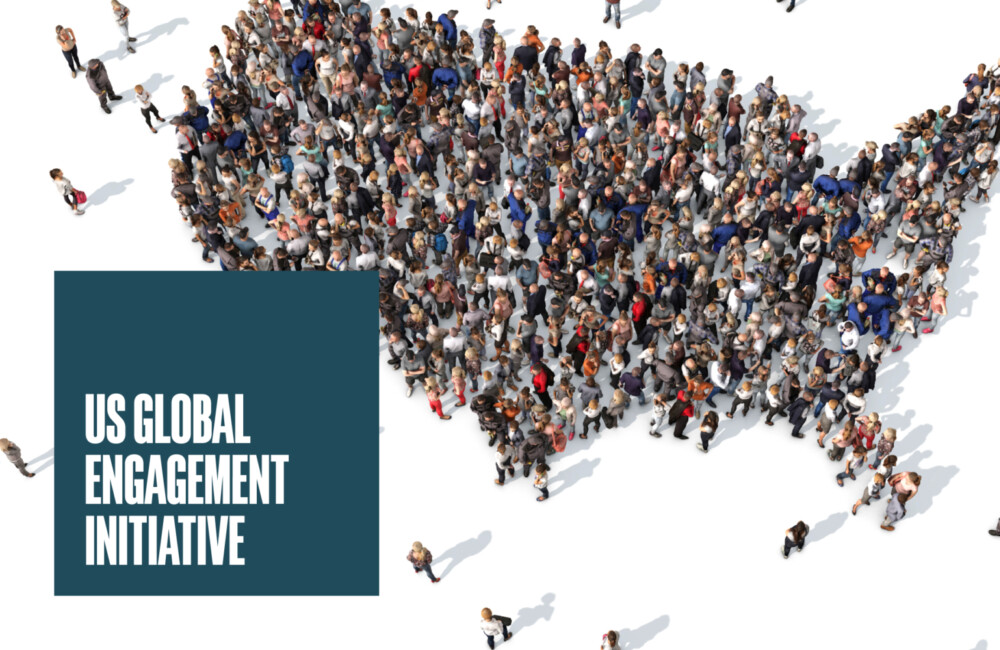Framing ethical perspectives
Multilateralism refers to a group of nations working together for a common goal. It is at the heart of international relations as nation-states form alliances with like-minded countries to take on global issues, such as climate, emerging technology, inequality, and collective security. Carnegie Council sees multilateralism as essential to generating solutions to global problems and a critical component of an ethical present and future.
Featured Multilateralism Resources
Inclusivity, AI & climate governance, and more
FEB 27, 2024 • Video
A Carnegie Council Conversation with the UK Home Secretary
MAR 28, 2024 • Video
Unlocking Cooperation: The Global South and Global North
In the inaugural panel of the "Unlocking Cooperation" series, Ramu Damodaran leads a discussion on forging a path forward for Global South/North collaboration.
OCT 18, 2023 • Video
Unlocking Cooperation: A Global Ethics Day Special Event
In this keynote event for Global Ethics Day 2023, Carnegie Council President Joel Rosenthal led a conversation on the psychology behind cooperation; ways that states, institutions, ...
Subscribe to the Carnegie Ethics Newsletter for more on ethics and international affairs
Related Initiatives
Model International Mobility Convention
The primary goal of the Model International Mobility Convention (MIMC) is to formulate new rules for migration and asylum that can benefit both migrants and refugees as well as their states of origin, transit, and destination.
Carnegie Ethics Accelerator
The Carnegie Ethics Accelerator is a new kind of incubator designed to empower ethics in the face of swiftly evolving challenges in technology and public policies.
Explore Our Multilateralism Resources

FEB 7, 2020 • Article
As Biden Stalls, Is the "Restorationist" Narrative Losing Ground?
U.S. Global Engagement Senior Fellow Nikolas Gvosdev notes that former Vice President Joe Biden is, in foreign policy terms, most associated with a "restorationist" ...

FEB 5, 2020 • Podcast
Democratic Candidates & Foreign Policy after Iowa, with Nikolas Gvosdev
With the (incomplete) results of the Iowa Caucus putting the spotlight on Pete Buttigieg and Bernie Sanders, what do we know about their foreign policy ...
FEB 4, 2020 • Podcast
Do Morals Matter? Presidents & Foreign Policy from FDR to Trump, with Joseph Nye
How much do morals matter for U.S. presidents when it comes to international affairs? What are the ethics of "America First" or 2003 invasion of ...

JAN 31, 2020 • Podcast
The Crack-Up: The Birth of the Modern Middle East, with Ted Widmer
At the end of World War I, colonial powers carved up the Ottoman Empire and the reverberations are still being felt today. Historian Ted Widmer ...

JAN 31, 2020 • Article
Compromising on Censorship? The Case for a Bilateral Agreement Over the Internet
"To prevent this status quo where the sovereignty of some states is infringed by the power of foreign platforms, a deal should be struck between ...

JAN 31, 2020 • Article
Global Internet, Global Regulations
This essay written by Zahra Niazi is the third prize winner of the undergraduate category in the 2019 student essay contest. If cyberspace is an international ...

JAN 31, 2020 • Article
Internet Regulation: The Responsibility of the People
This essay written by Justin Oh is the second prize winner of the high school category in the 2019 student essay contest. What have data and ...

JAN 30, 2020 • Article
Hybrid Narratives and Competing with China
Senior Fellow Nikolas Gvosdev responds to the new report released by the Center for a New American Security entitled "Rising to the China Challenge: Renewing ...

JAN 28, 2020 • Podcast
Carnegie New Leaders Interview: Moving Foreign Policy Forward, with Elmira Bayrasli
In discussion with Brian Mateo, a member of the Carnegie New Leaders program, Elmira Bayrasli discusses her work as CEO of Foreign Policy Interrupted, an ...

JAN 28, 2020 • Transcript
Carnegie New Leaders Interview: Moving Foreign Policy Forward, with Elmira Bayrasli
In discussion with Brian Mateo, a member of the Carnegie New Leaders program, Elmira Bayrasli discusses her work as CEO of Foreign Policy Interrupted, an ...




